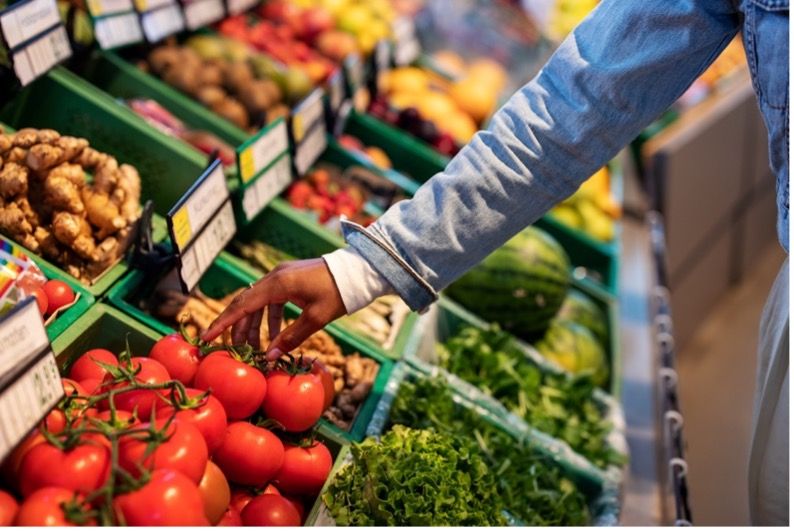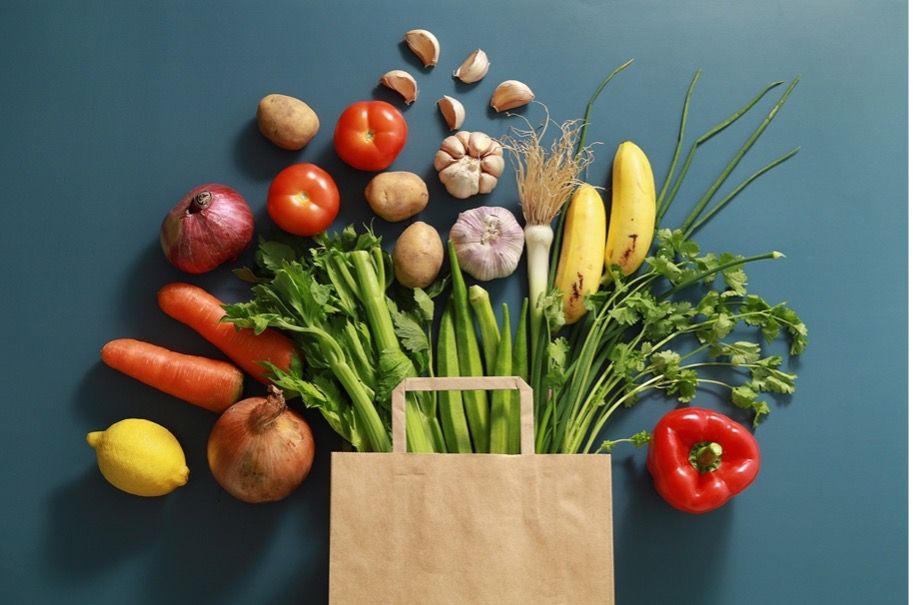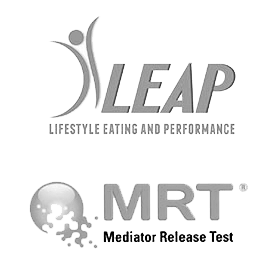New year, same BMs.
If you are reading this in real time, it is late January. Most of us have made aspirational resolutions and abandoned them for whatever reason (according to research). Many of us are firmly rooted back in our patterns from October, patiently waiting now for summer to derail our routine again and inspire us to come back better than ever, in the fall, I guess.
Listen, just because I am a gut health expert and registered dietitian does not mean I am not right there with you. So let’s break down what it means to set a goal, the different kinds of goals we can set, and how to achieve those goals. For this conversation of course, we will use gut health and overall wellness as the example.
Goals come in three kinds-
Process goals (we control these, 100%)
Performance goals (based on a standard, we control these 80-90%)
Outcome goals (based on winning we basically do not control these)
Let’s say I want a healthy gut this year, which I do, can’t lose everyone’s trust right? My goals might look like this
Process- Eat 80% of my meals at home with half my plate filled with plants
Performance- Feel healthier and stronger than I have ever felt
Outcome- Come in third place in a local race

So. If I set these goals on 1/1, where would I be today? I would have decided I failed at the first one because no one else controls that, and I ate out four times last week, and also had a frozen pizza. I would decide, if not by now than soon, that I can’t possibly feel healthier and stronger than ever because I cannot even eat as many vegetables as I wanted. Come in third place? I am a lazy, pizza eating loser. How am I supposed to do that? And when is this race, anyway?
Can you see how I set myself up? Here it is, my fresh new goals are 20 days old, and they suck and I am a failure. KNEW IT! Pass the Chick Fil A, please. Maybe this fall I’ll get to it.
STOP RIGHT THERE.
My theoretical self has not failed, she didn’t even try. And how could she? No road map, no systems, no accountability. Does this sound like you? Then read on my friend.
There is a kind of goal called a SMART goal. Specific, measurable, accountable, relevant, and timed. I don’t always set my goals in this way, but it is a useful tool to take your goal and make it relevant and give yourself some specifics about the goal. For example, instead of ‘come in third place in a local race’ I can say ‘beat my personal best time of 1 hour and run the hot dog race on May 5th in 55 minutes’. First, now this is a goal I can control a little more and I have a better chance of success, which boosts my motivation for the next thing. Second, there is a time limit. I have now from 1/1 to 5/5 to improve my time. Make sense?
Take a minute here and re-visit your resolutions, manifest list, goal list, whatever you called the list you made of things you want to do in this year at the beginning of the year. If you haven’t made one yet, that’s ok. Think of a few things you’d like to accomplish and jot them down.

Okay now that you’ve got that in front of you, lets break this down a little. If we use the race goal, how can I make that even more approachable to assist in meeting it?
I can make it more controllable, by saying I am going to run 4 days a week this week. I can say where I want to be by the end of this month, and next month. Basically, I want multiple small goals that are more palatable and feel more do-able so I feel confident I can reach my larger goal.

Another example - Eat 80% of my meals at home with half my plate filled with plants. Okay. What about ‘Cook 4 meals this week and make half of my plate plants’? That’s easier, and if I make large batches of those meals, I can have leftovers for lunch. I could also say ‘reduce takeout to 4 times this month’ and ‘bring lunch to work 4 days this week’.
Sure, overall, I want 80% of the food I eat to be in line with this healthy self I am imagining. I could make that 2 meals and 1 snack per day (out of 3 meals and 2 snacks total), I could make that six out of seven dinners this week, etc. But to just say 80% as my goal does not give me direction, no specifics, no time frame and really the only outcome possible is confusion and self-loathing. I love to self loathe but that’s a convo for another day guys.

If I want to eat healthier, what am I doing this week?
I am making a list of the 21 meals I plan to eat.
Then I will fill in any social engagements or plans that keep me away from the home either around or during any meal.
Then I am looking at what I already have, especially if it is perishable.
Creating some meals using those items as a base. The easiest way to do that in my opinion is to google ‘shrimp brussels sprouts rice’ or whatever. You will be BLOWN AWAY. Google says, ‘one pan honey sesame shrimp with roasted brussels sprouts’. Um, yes. Have sesame oil. Check. That can be two meals, you know? So, we’ve only got 19 left.
Hot take-breakfast can be a variation of the same thing every day, so oatmeal, nut butter, and fruit for me. Great way to get a head start. Leftovers also count if you plan to make enough. So now I have 9 meals planned in about 4 minutes.
Once I have a plan, I am making a list and going to the grocery store. While I am at the store, I am getting a rotisserie chicken and a salad in a bag for tonight. I don’t know what kind of psychopath fights for their life at Costco and then comes home to sesame roast some brussels sprouts but it isn’t me. Didn’t think of chicken and salad from bags? Meal #10 for you.

Can you see how I am much more prepared to succeed than I was at the start of this? I have decided to set smaller, specific goals for myself. This way, I can accomplish anything. If I want to run a marathon that can be my big goal, but I need to set a date and work backward week by week to gain traction and be prepared to hit the milage needed.
To recap, some starter goals could be
-Eat 1 purple or red fruit/veg per day for one month (get specific and list the kinds)
-Eat 3 green bananas per week (green-ish, very good for your gut)
-Add oats into your diet weekly
-Drink an extra glass of water/decaf tea per day this week (and keep building on that until you get to 8)
-Eat a fruit or veg with every meal
-Get 20 minutes of time outside per day this week
-Get 150 minutes of physical activity this week
-Reduce screen time by 30 minutes today
-Spend 10 minutes to myself today
-Go for a brisk walk after dinner twice this week
-Cook 4 meals this week
-Read one book this month (if you reduce screen time by 30 minutes a day, you have 900 free minutes now this month)
-Make one thing you can keep in the freezer for a time when you hate food and you hate people, too. I suggest meatballs for these times.

I understand that we are all feeling a little less glittery and new than we were three weeks ago. The great news is, there is so much time left to accomplish anything you want-include a healthier lifestyle. None of us are perfect. Embrace that. Be gentle with yourself by setting goals you can achieve and build on that feeling.

Molly is a Registered Dietitian, Integrative and Functional Nutrition Certified Practitioner, and gut health expert with Crohn’s Disease on a mission to help you understand your body.
Want to work with me 1:1? Schedule a call here.
Let’s connect on Instagram and TikTok
Check out my course







